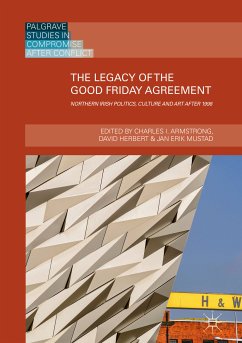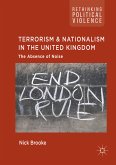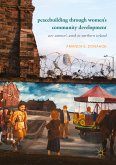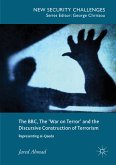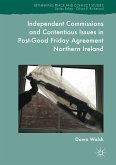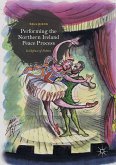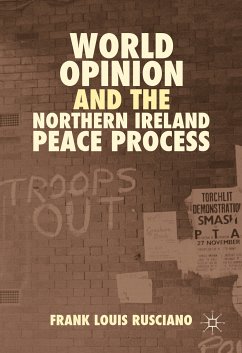This book provides a multidisciplinary collection of essays that seek to explore the deeply problematic legacy of post-Agreement Northern Ireland. Thus, the authors of this book look at a number of issues that continue to stymie the development of a robust and sustainable peacebuilding project, including segregation, contested parades and flags, ethnic party mobilization, and memorialization. Towards addressing these contemporary issues, authors are drawn from a range of disciplines, including politics, history, literature, drama, cultural studies, sociology, and social psychology.
Charles I. Armstrong is a Professor of British literature at the University of Agder, Norway.
David Herbert is Professor of Sociology at Kingston University, UK, and Professor of Religious Studies at the University of Agder, Norway.
Jan Erik Mustad is Associate Professor in British Studies in the Department of Foreign Languages at theUniversity of Agder, Norway.
Dieser Download kann aus rechtlichen Gründen nur mit Rechnungsadresse in A, B, BG, CY, CZ, D, DK, EW, E, FIN, F, GR, HR, H, IRL, I, LT, L, LR, M, NL, PL, P, R, S, SLO, SK ausgeliefert werden.

